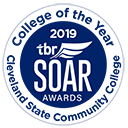Archivist
Archivists
25-4011.00
Median wages
$42,580
Appraise, edit, and direct safekeeping of permanent records and historically valuable documents. Participate in research activities based on archival materials.
- Organize archival records and develop classification systems to facilitate access to archival materials.

- Provide reference services and assistance for users needing archival materials.

- Prepare archival records, such as document descriptions, to allow easy access to information.

- Authenticate and appraise historical documents and archival materials.

- Create and maintain accessible, retrievable computer archives and databases, incorporating current advances in electronic information storage technology.

- Preserve records, documents, and objects, copying records to film, videotape, audiotape, disk, or computer formats as necessary.

- Establish and administer policy guidelines concerning public access and use of materials.

- Direct activities of workers who assist in arranging, cataloguing, exhibiting, and maintaining collections of valuable materials.

- Research and record the origins and historical significance of archival materials.

- Locate new materials and direct their acquisition and display.

- Coordinate educational and public outreach programs, such as tours, workshops, lectures, and classes.

- Specialize in an area of history or technology, researching topics or items relevant to collections to determine what should be retained or acquired.

- Select and edit documents for publication and display, applying knowledge of subject, literary expression, and presentation techniques.
- Data base user interface and query software — DiMeMa CONTENTdm; Gallery Systems The Museum System; Microsoft Access
 ; PREMIS
; PREMIS
- Development environment software — Encoded Archival System EAD

- Document management software — Adobe Systems Adobe Acrobat


- Electronic mail software — Microsoft Outlook


- Enterprise application integration software — Extensible markup language XML


- Graphics or photo imaging software — Adobe Systems Adobe Photoshop
 ; Corel Paint Shop Pro
; Corel Paint Shop Pro
- Internet browser software — Web browser software

- Office suite software — Microsoft Office

- Presentation software — Microsoft PowerPoint


- Spreadsheet software — Microsoft Excel


- Video creation and editing software — Adobe Systems Adobe Premiere Pro; Apple Final Cut Pro


- Web platform development software — Dynamic hypertext markup language DHTML
 ; Hypertext markup language HTML
; Hypertext markup language HTML 

- Word processing software — Microsoft Word

![]() Hot Technology — a technology requirement frequently included in employer job postings.
Hot Technology — a technology requirement frequently included in employer job postings.
- Reading Comprehension — Understanding written sentences and paragraphs in work related documents.

- Active Listening — Giving full attention to what other people are saying, taking time to understand the points being made, asking questions as appropriate, and not interrupting at inappropriate times.

- Writing — Communicating effectively in writing as appropriate for the needs of the audience.

- Judgment and Decision Making — Considering the relative costs and benefits of potential actions to choose the most appropriate one.

- Active Learning — Understanding the implications of new information for both current and future problem-solving and decision-making.

- Critical Thinking — Using logic and reasoning to identify the strengths and weaknesses of alternative solutions, conclusions or approaches to problems.

- Complex Problem Solving — Identifying complex problems and reviewing related information to develop and evaluate options and implement solutions.

- Speaking — Talking to others to convey information effectively.

- Time Management — Managing one's own time and the time of others.

- Coordination — Adjusting actions in relation to others' actions.

- Monitoring — Monitoring/Assessing performance of yourself, other individuals, or organizations to make improvements or take corrective action.

- Service Orientation — Actively looking for ways to help people.

- Social Perceptiveness — Being aware of others' reactions and understanding why they react as they do.










